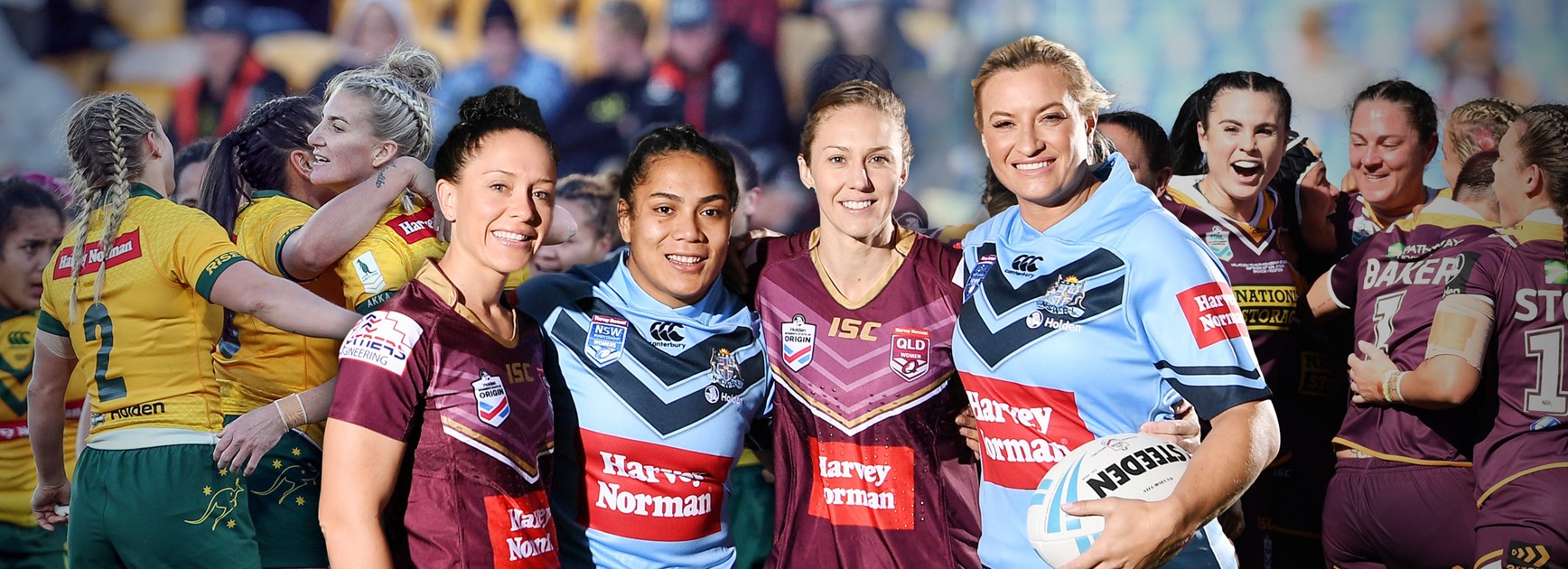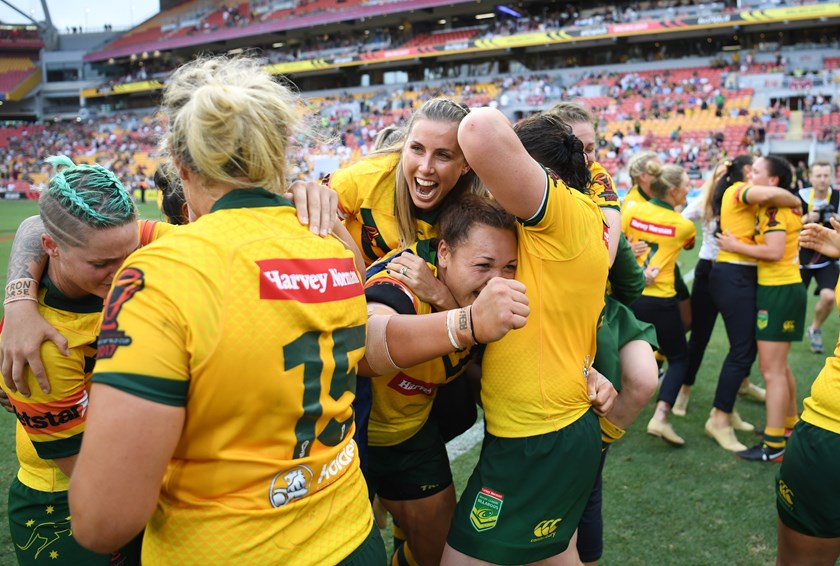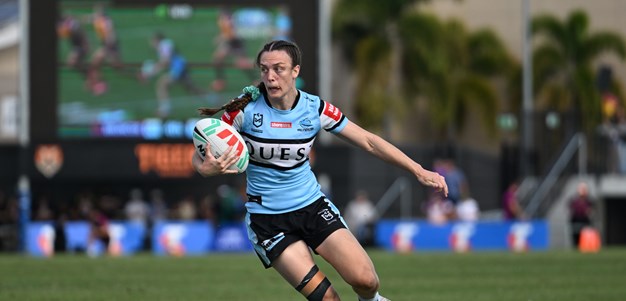
Today is International Women's Day; a day where people across the world come together to celebrate the social, economic, cultural and political achievements of women. It's also used as a call to action to promote messages about gender diversity, inclusion and the push for parity.
When it comes to diversity and inclusion, sport has been a beacon over the last couple of years as sports fans in Australia have witnessed and been part of a revolution in women's sport. Now young girls across the country grow up knowing they can pursue a multitude of sports via competitions that are either professional or working towards that status including the WNRL, AFLW, WNBL, WBBL, W-League, Super W and Super Netball.
Most importantly, the next generation of kids is growing up knowing that men and women play sport; they have never known any other way.
There has been plenty of progress on the field, but given the tumultuous NRL off-season which has been tarnished by allegations of assault and rape and the non-consensual filming and release of several sex tapes, I've been asked several times whether any progress has been made off it and whether the NRL is genuine in its claims about being a sport that welcomes everyone.
At times it is extremely challenging to reconcile my feminism with my support of not just rugby league, but sport in general.
Given our country's obsession with sport, allegations of player misbehaviour are often the source of major news, dominate the cycle and our daily conversations. At times this news can seem overwhelming and depressing.
Despite feeling this way, I strongly believe it is easier to walk away from an interest than to acknowledge that our sports are a reflection of our society and many of the issues confronting the NRL at the moment are also widespread in the Australian community.
Rather than bury my head in the sand and pretend it doesn't exist elsewhere, I want to be a fan that speaks out against socially unacceptable behaviour, change the conversation and ask for more from the players that represent our clubs and communities.
When people ask me how I can be a feminist and support rugby league, I tell them this.
Five years ago, when I first began writing and commentating about footy, I hadn't considered that women also played rugby league. You can't be what you can't see and I had never seen women holding a Steeden. But then I found out about a talented group of women called the Australian Jillaroos and realised if I didn't know who they were then there would be plenty of other rugby league fans who didn't either.
So I began sharing their stories and joined a community of other people that did the same.

Over the last five years, thanks to women past and present who have played the game, advocacy and increased media attention, we now have a clear pathway for women and girls, a women's competition and an expectation that women will play footy. If there is an international fixture featuring the men, it's expected the women will get the opportunity to play too.
This new state of affairs is of course the result of plenty of work done within the game and an NRL decision to champion the women's game, but the contributions of those who have pushed and advocated along the way cannot be discounted.
As fans, our voices are powerful and we should not underestimate the impact that we can have on decisions about how our game is governed and our expectations about those who play the game.
The NRL leadership do listen to our voices and we can help drive change.
We saw another powerful example of this last week. Todd Greenberg and Peter Beattie fronted the media to announce that the Australian Rugby League Commission will stand down players facing serious indictable offences on full pay while they are before the courts without any presumption of guilt following a national conversation about player behaviour. A serious indictable offence is one that carries a maximum jail term of at least 11 years.
Some may say that this is too late given that plenty have advocated for years about stronger action in relation to players that have either been charged or convicted of an offence. But irrespective of timing, this change tells the community that serious allegations, particularly of violence against women are taken seriously.
It's very easy to point to this off-season and suggest that the NRL does not care about women. But this change in policy tells me that they do. The relationships that the NRL has with Our Watch and the Full Stop Foundation also tells me that they do; our players are some of the best educated in society around respectful relationships.
Potentially this message is not getting through, but after the new policy announcement perhaps it will.
Women play a fundamental role in our game. They are mums that drive their kids to footy. They are administrators. They are leaders. They are referees. They are fans. They are players. Their voices are important and valued. But at their core, they are people. And need to be seen first and foremost in this way.
So this International Women's Day, I want to encourage all women who are finding it hard to justify their love of footy at the moment to remember that you have a powerful voice. Don't be afraid to use to encourage and push so that our game can be the best it can be.



